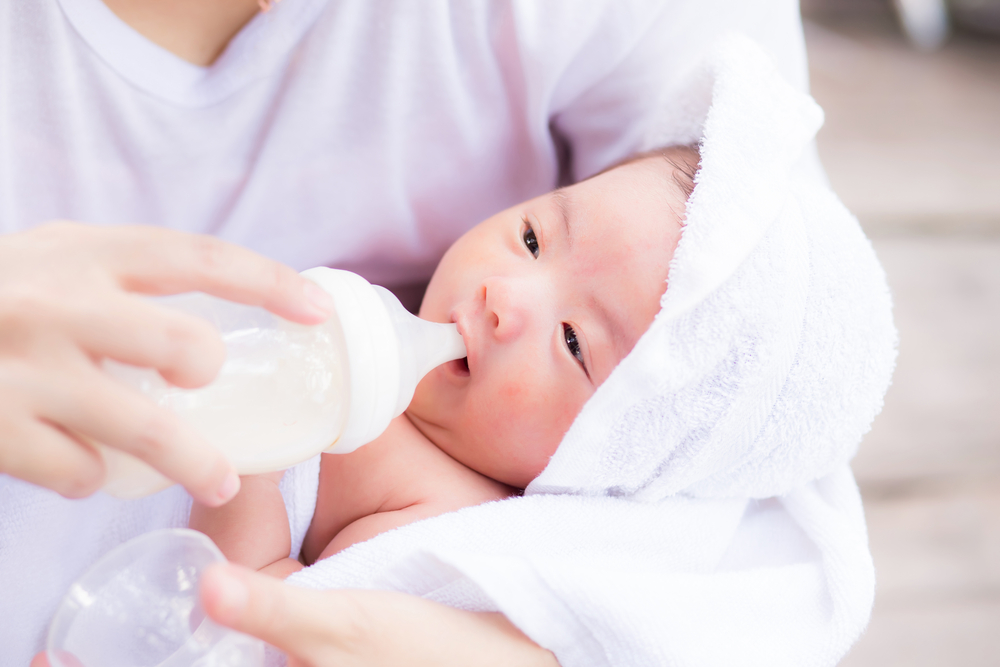Contents:
- Medical Video: Baby | Reflux In A Newborn Baby | StreamingWell.com
- Why don't babies match formula milk?
- What are the signs and symptoms of infant formula milk allergies?
Medical Video: Baby | Reflux In A Newborn Baby | StreamingWell.com
As you grow, your child's nutritional needs will increase. Giving ASI will certainly shift to formula milk and other nutritious foods. Unfortunately, not all children are compatible with formula milk. Well, if you have just weaned a child with formula milk, pay attention to how the baby's reaction after drinking milk is important. If an unusual reaction appears, chances are the baby has an allergy to formula milk.
What are the characteristics and signs if the baby does not match formula milk? Come on, recognize some formula milk allergic reactions that might occur in the following little ones.
Why don't babies match formula milk?
Formula milk on the market is generally made from cow's milk. Unfortunately, not all babies are suitable for drinking milk from this grass-eating animal. Babies who are allergic to cow's milk have abnormalities in their immune systems. The immune system, which is supposed to fight infection, overreacts to the proteins contained in cow's milk. Allergies in milk are common in children.
When cow's milk is drunk, the body releases chemicals such as histamine to fight cow's milk protein. Histamine released by the body can cause various reactions in infants. This allergic reaction makes babies not suitable for drinking formula milk.
What are the signs and symptoms of infant formula milk allergies?
Allergic formula milk reactions can be clearly observed. Reporting from Parents page, allergy symptoms will usually appear in the first week or two months after the baby is given formula milk. The more sensitive the immune with cow's milk protein (casein), then the symptoms will appear faster.
Signs and symptoms of formula milk allergy vary. Every baby also shows different allergies. Whatever the symptoms, your child will certainly look uncomfortable and become more fussy than usual. If your baby does not match formula milk, generally they will show an allergic reaction, including:
- Vomiting often after drinking milk
- Frequent fuss and crying due to abdominal pain and difficult to pass urine
- Dispose of water so it is more frequent, runny, more smelly than usual or even bleeding
- Swelling appears on the lips, tongue, or throat
- The nose and eyes continue to runny
- A rash appears on the skin that can spread, initially appearing around the forehead
- Frequent farting or roar in the baby's stomach
In severe cases, babies can also experience difficulty breathing. In addition, the face will turn red and blood pressure will decrease. This condition is also called anaphylactic shock, which is a fatal reaction due to narrowing of the respiratory tract.
Then, another symptom that might occur is that the baby becomes more sensitive and irritable after eating. When you offer a milk bottle to calm him down, he will refuse and cry won't want to drink.
Overcoming formula milk allergies in children is certainly not easy. Moreover, children who are still in the development stage need nutrients from milk to build bones and teeth. One way to reduce the severity of allergies is to give exclusive breastfeeding for at least 6 months. Then, consult a doctor or child nutritionist to help you choose other safer formula milk.













